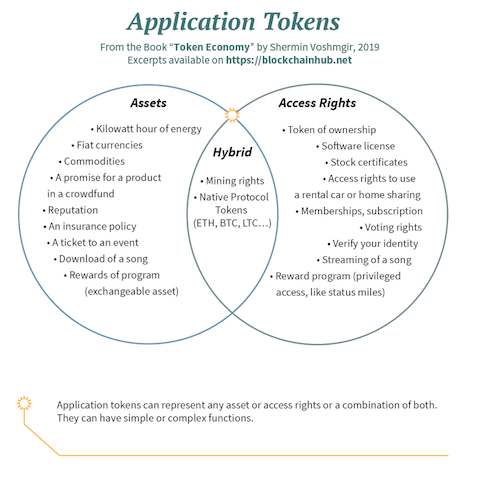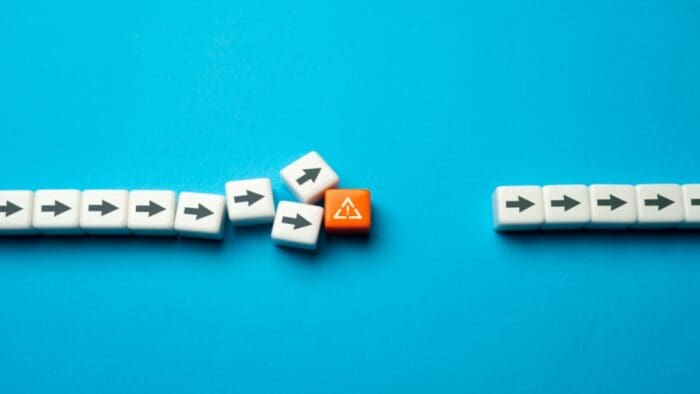See Part I for an overview, Part II for a look into the components of Blockchain and Part III for the strengths of Blockchain.
Applications of Blockchain
I hope that you can appreciate how impressive blockchain technology is. It holds promise to change the way we think, alter the way we do business, modify the concept of trust in transactions, and so much more.
Let us now look at some areas where blockchain can make, or is already making, an impact.
Financial transactions
This is probably the most well-known use case of the blockchain. In fact, the term blockchain is used almost synonymously with Bitcoin, perhaps because Satoshi Nakamoto (the founder of Bitcoin) used the terms’ block’ and ‘chain’ in his 2008 paper on Bitcoin.
But Bitcoin is just the first use case of blockchain technology. Many cryptocurrencies have followed- Ethereum, Ripple, Monero, Cardano, etc. Exchanges like NASDAQ, Korea Exchange, Moscow Exchange Group, Luxembourg Stock Exchange, etc., have already started implementing blockchain technology. You can read more about how blockchain is changing stock markets here.
Blockchains make micro-payments possible and eliminate the need for a third party. They also make the transactions pseudonymous, so even people without identities can make transactions.
Tokens built on blockchains are being used as virtual currencies for investment and economic purposes. You can get more information on cryptocurrency wallets here.

Source: https://blockchainhub.net/wp-content/uploads/sites/2/2019/07/Tokens_ApplicationTokens.png
Smart Contracts
Smart contracts are agreements between two or more parties, with a mutually-agreed set of well-defined conditions that execute automatically.
Let’s take an example- my friend and I bet on the outcome of a cricket match. We fix that the information from a particular website would be considered authentic and used to confirm the match’s outcome.
So both my friend and I deposit our share of money with the system, and the person who wins the bet gets the whole amount automatically based on the match outcome, as per the agreed website. Of course, this is probably too much diligence in case of a simple bet between two friends.
But what about a wager between two strangers across the globe who do not have an existing relationship making it impossible to have a basis of trust without involving a third party as a mediator.
Imagine more complicated business scenarios:
A musician putting up all the details regarding her latest song on the blockchain with smart contracts with a music company.
She allows the company to use her song as per some clearly-defined and mutually -agreed conditions for a certain period, subject to the receipt of a certain percentage of the sales as a royalty.
Her account gets auto-credited every month based on the sales of her records that can be tracked on the blockchain network, and the penalty is paid immediately if either party violates any clause.

Ah, a world without the need for lawsuits for violation of contracts! No police and government to ensure that everyone follows the rules! Sounds utopian, right?
Self-sovereign identities
The proof of our existence lies in the birth certificates issued by the local authority. The evidence of our employment are the identity cards issued by our employer. The certificate of our earning and driving ability are the documents issued by the relevant authorities.
We are, in essence, nothing but a set of records in different databases created by various entities!
We need a trusted third party to certify our existence authentically. But what if you lose all your documents- as in the case of an immigrant.
Relief workers are now working on blockchain projects that can help create identities for such people. A blockchain can help create an authentic unequivocal identity for anyone.
Now you don’t have to get your identity certified by a third party. You don’t need to divulge all your personal information to get that identity and then have that information used for all sorts of things behind your back. You should control how much information you want to reveal and sell it for money if you wish!
If information is power, you should control who gets it from you and how much.
Supply chain management
If the transactions are recorded on the blockchain at each step of the process, it will make the entire supply chain more transparent.
The producers would be paid fairly without any middlemen and can track the whole journey of their produce. The consumers can be sure of the origin and quality of the products they purchase. There will not be any fake products being sold, no more counterfeit vaccines and medicines from the black market. A win-win situation!
As we can see, due to the strengths lent by the very structure of blockchains, they have applications in many areas of our life, be it music, solar energy, real estate, etc.
Stay tuned for the next installment in which Udisha Alok will review the challenges of using Blockchain.
Visit QuantInsti for additional insight on this topic: https://blog.quantinsti.com/blockchain/
Disclosure: Interactive Brokers Third Party
Information posted on IBKR Campus that is provided by third-parties does NOT constitute a recommendation that you should contract for the services of that third party. Third-party participants who contribute to IBKR Campus are independent of Interactive Brokers and Interactive Brokers does not make any representations or warranties concerning the services offered, their past or future performance, or the accuracy of the information provided by the third party. Past performance is no guarantee of future results.
This material is from QuantInsti and is being posted with its permission. The views expressed in this material are solely those of the author and/or QuantInsti and Interactive Brokers is not endorsing or recommending any investment or trading discussed in the material. This material is not and should not be construed as an offer to buy or sell any security. It should not be construed as research or investment advice or a recommendation to buy, sell or hold any security or commodity. This material does not and is not intended to take into account the particular financial conditions, investment objectives or requirements of individual customers. Before acting on this material, you should consider whether it is suitable for your particular circumstances and, as necessary, seek professional advice.
Disclosure: Bitcoin Futures
TRADING IN BITCOIN FUTURES IS ESPECIALLY RISKY AND IS ONLY FOR CLIENTS WITH A HIGH RISK TOLERANCE AND THE FINANCIAL ABILITY TO SUSTAIN LOSSES. More information about the risk of trading Bitcoin products can be found on the IBKR website. If you're new to bitcoin, or futures in general, see Introduction to Bitcoin Futures.














Join The Conversation
For specific platform feedback and suggestions, please submit it directly to our team using these instructions.
If you have an account-specific question or concern, please reach out to Client Services.
We encourage you to look through our FAQs before posting. Your question may already be covered!